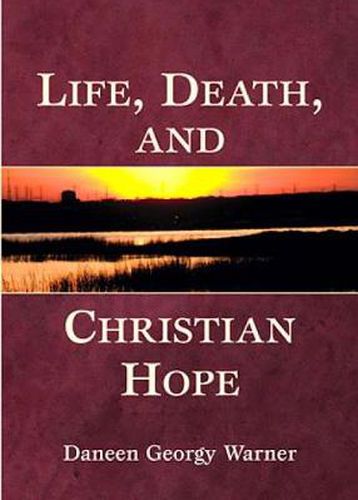Readings Newsletter
Become a Readings Member to make your shopping experience even easier.
Sign in or sign up for free!
You’re not far away from qualifying for FREE standard shipping within Australia
You’ve qualified for FREE standard shipping within Australia
The cart is loading…






This book challenges Christians to reframe dying and death in three ways. First, Christians should acknowledge the truth about the human condition. Having done so, Christians are then free to accept lament as an important Christian practice for moving from a dependency on human hope to hope in God or divine hope. Second, with lament Christians are better able to accept death and dying in response to the Good News of Holy Scripture, Baptism and Eucharist. The Good News is Christ has died, Christ is risen, Christ will come again -the mystery of faith and source of Christian hope. This hope through God’s grace moves Christians to love others within an eschatological community that transcends both time and place. Third, Christians transform faith communities in light of the Good News so that love flourishes in daily dying to self through beatitudinal living for others. As a result, the preparation of daily dying forms Christians to accept mortality not as the worst evil to resist in every way but rather as the final stage of a life long journey with Christ into eternal life. The book challenges Christians, both clergy and laypersons, to consider this perspective. This challenge is supported with both scriptural and theological explanations as well as practical observations for reflection from unscientific discussions with twenty Christians, both clergy and church member, from five different Christian traditions.
$9.00 standard shipping within Australia
FREE standard shipping within Australia for orders over $100.00
Express & International shipping calculated at checkout
This book challenges Christians to reframe dying and death in three ways. First, Christians should acknowledge the truth about the human condition. Having done so, Christians are then free to accept lament as an important Christian practice for moving from a dependency on human hope to hope in God or divine hope. Second, with lament Christians are better able to accept death and dying in response to the Good News of Holy Scripture, Baptism and Eucharist. The Good News is Christ has died, Christ is risen, Christ will come again -the mystery of faith and source of Christian hope. This hope through God’s grace moves Christians to love others within an eschatological community that transcends both time and place. Third, Christians transform faith communities in light of the Good News so that love flourishes in daily dying to self through beatitudinal living for others. As a result, the preparation of daily dying forms Christians to accept mortality not as the worst evil to resist in every way but rather as the final stage of a life long journey with Christ into eternal life. The book challenges Christians, both clergy and laypersons, to consider this perspective. This challenge is supported with both scriptural and theological explanations as well as practical observations for reflection from unscientific discussions with twenty Christians, both clergy and church member, from five different Christian traditions.